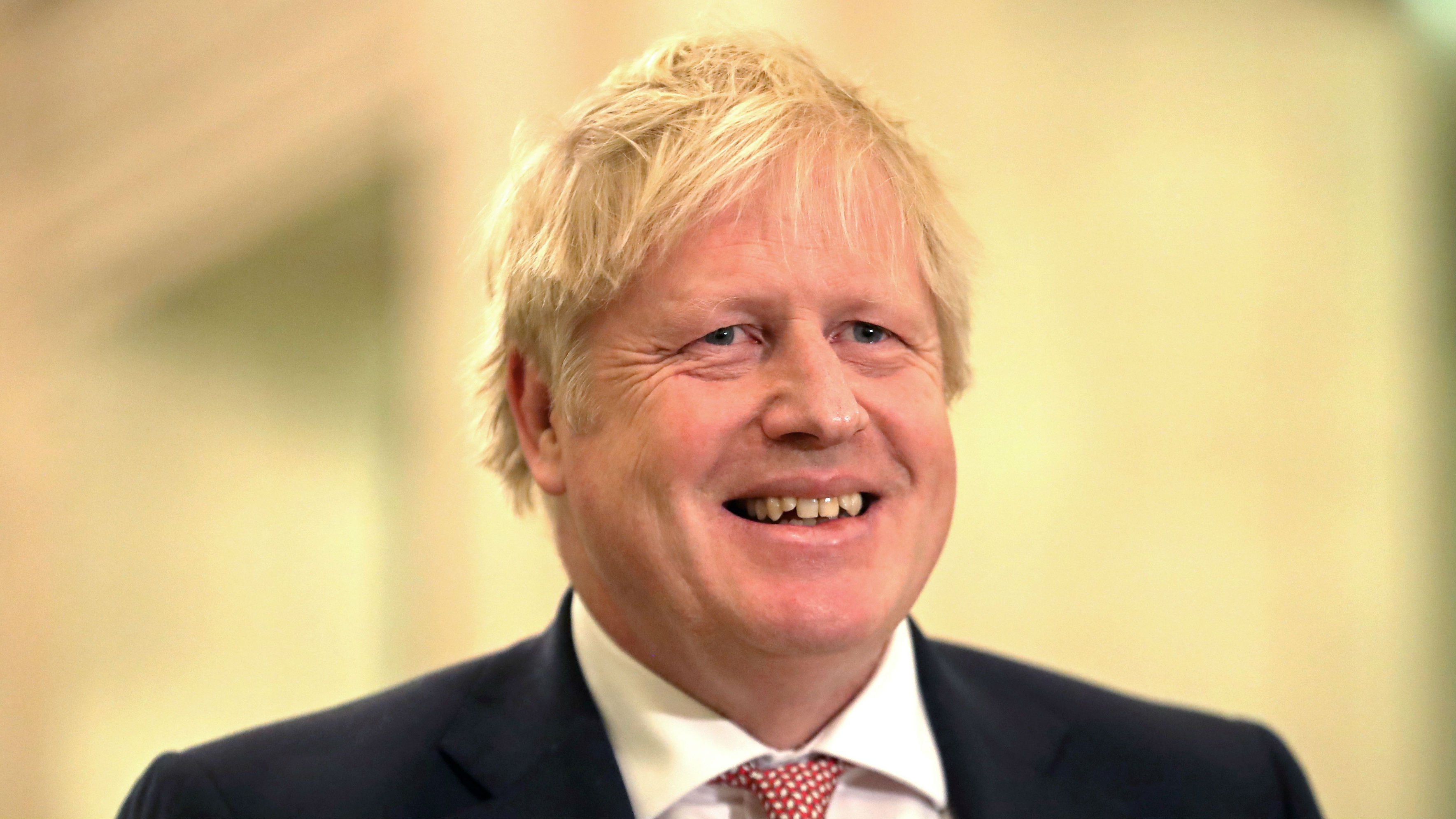How long will Boris Johnson’s honeymoon period last?
PM still ‘bathing’ in general election triumph as he faces BBC interviewer

A free daily email with the biggest news stories of the day – and the best features from TheWeek.com
You are now subscribed
Your newsletter sign-up was successful
Boris Johnson was still riding high from last month’s general election landslide today as he took part in his first sit-down interview since the general election.
The prime minister faced questions from the BBC’s Dan Walker at Downing Street after arriving fresh from Northern Ireland, where he “basked in the feel-good moment” of helping to revive a power-sharing deal for Stormont, reports The Guardian.
BBC Breakfast presenter Walker quizzed Johnson on topics ranging from the ongoing Iran crisis and his recent holiday to Meghan Markle and Big Ben’s Brexit bongs - but is facing criticism for “going too easy” on the Tory leader, says the Daily Express.
The Week
Escape your echo chamber. Get the facts behind the news, plus analysis from multiple perspectives.

Sign up for The Week's Free Newsletters
From our morning news briefing to a weekly Good News Newsletter, get the best of The Week delivered directly to your inbox.
From our morning news briefing to a weekly Good News Newsletter, get the best of The Week delivered directly to your inbox.
In the run-up to the 12 December election, Johnson appeared to be growing “uncharacteristically agitated”, says The Telegraph’s parliamentary sketchwriter Michael Deacon. “But now look at him. He is, quite visibly, enjoying every moment. Wallowing in his triumph. Bathing in it.
“His demeanour, at least in public, is dreamily relaxed, dazedly content, as though he were shuffling blissfully towards the sun-loungers after a two-hour back massage in the hotel spa.”
“Doubtless some form of unforeseen calamity will be along in due course to darken his horizon,” Deacon adds, but “for this brief moment at least, things seem to be going almost eerily well” for Johnson.
This current state of bliss was predicted last September by The Prime Ministers author Steve Richards, who warned that “prime ministerial honeymoons are intoxicating”.
A free daily email with the biggest news stories of the day – and the best features from TheWeek.com
Newly elected leaders usually enjoy a leap in opinion polls as they are hailed as a breath of fresh air, leaving them feeling “close to omnipotent”, Richards wrote in an article for the Financial Times.
But in a note of warning, he concluded: “Precise predictions about Mr Johnson’s fate are impossible, but if the pattern of the recent past recurs he will soon discover the arduous, grinding reality of prime ministerial power.”
The Independent’s Benjamin Kentish suggests that concerns over the deal to restore power-sharing at Stormont might spark the first Tory rebellion against the new government.
As Kentish explains, the Conservatives will have to balance their promise to investigate unsolved murders during the Troubles with their manifesto pledge to “introduce new legislation to tackle the vexatious legal claims” against serving and former members of the Armed Forces.
“No. 10 is likely to be able to find a way to juggle the two demands in order to defuse the potential row,” Kentish continues. “However, the issue is a sign of things to come.
“There are a number of major issues – including Brexit, social care, taxation and public spending – where Johnson could well find himself on a collision course with his own MPs in the coming years.”
–––––––––––––––––––––––––––––––For a round-up of the most important stories from around the world - and a concise, refreshing and balanced take on the week’s news agenda - try The Week magazine. Start your trial subscription today –––––––––––––––––––––––––––––––
Assessing today’s BBC interview, the Daily Mirror’s head of politics Jason Beattie says that Johnson was “still in campaign mode, repeating his election slogans and hoping that a hefty dose of unsubstantiated optimism is sufficient to buy off voters”.
But the PM is unlikely to retain voters’ support for much longer unless he starts delivering on his election pledges, Beattie warns.
“Johnson’s promises of extra investment for public services will mean nothing if people do not experience any improvements in schools, education and their local community,” he says.
“The Tory victory in December was built on a fragile alliance of traditional supporters in the shires and disenchanted Labour voters in former industrial areas. Keeping both these constituencies on side may prove beyond Johnson’s capability.”